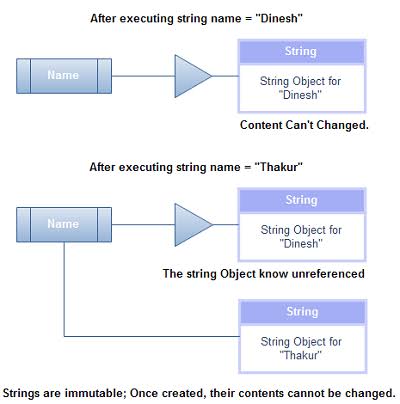Checking Out the Advantages of Immutable Strings in Modern Programs Paradigms
In the realm of contemporary programs paradigms, the concept of immutable strings stands as a foundation of durable software program advancement. The benefits they offer go beyond mere benefit; they essentially alter the method information is managed within applications. By taking on unalterable strings, developers can ensure enhanced data integrity, improved string security, streamlined debugging procedures, enhanced protection procedures, and efficient efficiency optimization. These advantages offer as a testimony to the extensive impact that welcoming immutability can have on the reliability and effectiveness of software systems.
Boosted Data Stability

By avoiding the alteration of string objects, immutability eliminates the danger of unintentional modifications to the information they hold. This not only enhances the safety of the information but also improves the integrity of the code that depends on these strings.
Immutability also supports much safer multithreading settings, as concurrent accessibility to immutable strings does not pose the danger of data corruption via simultaneous alterations. This residential or commercial property simplifies the process of dealing with strings in identical shows circumstances.
In essence, immutability serves as a safety guard around the data stored within strings, boosting their integrity by guaranteeing that once defined, their values stay unmodified throughout the program's implementation.

Improved String Security
Unalterable strings improve the thread safety and security of programs by guaranteeing that as soon as a string object is produced, its value can not be changed. This building removes the risk of simultaneous strings attempting to modify the exact same string concurrently, which can bring about information corruption or irregular states in the program - Why are strings immutable in Java?. In a multi-threaded environment, where several threads gain access to and adjust information at the same time, the immutability of strings gives a degree of safety by ensuring that the information continues to be unchanged throughout its lifecycle
Streamlined Debugging Procedures
Offered the improved thread safety promoted by immutable strings, a considerable advantage develops in the world of streamlined debugging processes. Immutable strings, when created, can not be altered, making it much easier to trace the flow of data and recognize the resource of pests in a program. This immutability guarantees that strings remain constant throughout the implementation of the program, reducing the about his possibility of unanticipated adjustments that can lead to errors.
When debugging with mutable strings, developers commonly come across concerns where a string's worth is customized inadvertently, making it challenging to identify the root reason of an insect. Nevertheless, with immutable check my blog strings, the data stays unchanged, allowing designers to concentrate on examining the real logic of the code instead than tracking down where and when a string was changed inaccurately.
Additionally, unalterable strings streamline the debugging procedure by allowing much easier reproduction of pests. Since immutable strings do not transform state, programmers can recreate and research bugs better, bring about quicker identification and resolution of issues within the codebase. This streamlined debugging process eventually contributes to higher software quality and enhanced overall growth effectiveness.

Boosted Safety Steps
Enhancing data defense and strengthening system integrity, the application of immutable strings in software applications adds substantially to enhanced protection procedures. Immutable strings additionally play an important duty in stopping common security susceptabilities such as buffer overflows and SQL shot strikes, as attempts to adjust string data at runtime are naturally restricted.
Moreover, the immutability of strings improves the predictability of program behavior, making it simpler to verify inputs and protect against unanticipated adjustments that might endanger security. This predictability simplifies the process of bookkeeping and verifying code, making it possible for developers to determine potential safety loopholes a lot more properly. In general, including immutable strings into software application growth practices not just boosts the robustness and dependability of applications yet additionally strengthens their durability versus security dangers.
Reliable Performance Optimization
When dealing with mutable strings, operations like concatenation or substring creation frequently result in the creation of new string objects, leading to memory expenses and increased handling time. By enabling strings to remain continuous and unchangeable, immutable strings promote far better memory monitoring and caching opportunities, ultimately boosting the total efficiency of the software application.
Given that unalterable strings can not be modified as soon as created, they site web can be shared across threads without the threat of unanticipated changes, lowering the need for synchronization systems and enhancing concurrency. Immutable strings streamline debugging procedures as programmers can rely on that a string's value will certainly remain regular throughout the program's execution, removing possible mistakes caused by mutable state changes.
Conclusion
To conclude, the advantages of utilizing immutable strings in contemporary programming standards can not be overemphasized. Boosted data integrity, enhanced string safety, simplified debugging procedures, raised safety and security actions, and effective efficiency optimization all add to the general effectiveness of programming tasks. By incorporating immutable strings into shows methods, designers can take advantage of a much more robust and trustworthy codebase.
Immutability, a key feature of strings in programming languages such as Java and Python, makes certain that once a string object is produced, it can not be altered or customized.Unalterable strings boost the string safety of programs by making sure that as soon as a string item is developed, its worth can not be customized. Immutable strings also play an essential function in protecting against usual protection vulnerabilities such as buffer overflows and SQL injection attacks, as attempts to manipulate string information at runtime are naturally limited.
By enabling strings to remain stable and constant, unalterable strings facilitate better memory management and caching possibilities, eventually enhancing the total efficiency of the software program.
Immutable strings streamline debugging processes as developers can rely on that a string's value will stay consistent throughout the program's implementation, removing potential mistakes caused by mutable state adjustments.